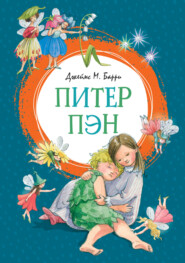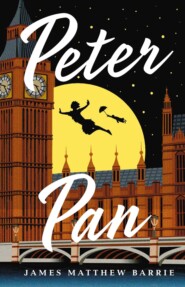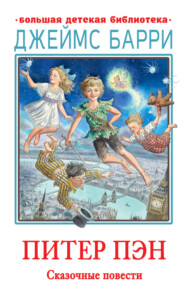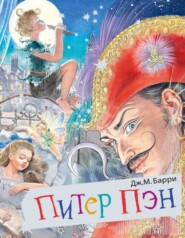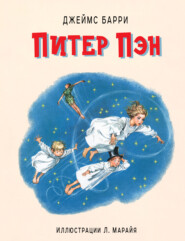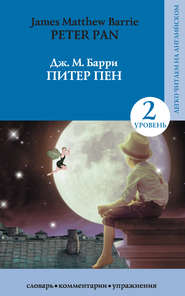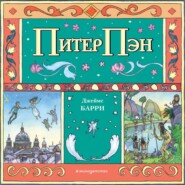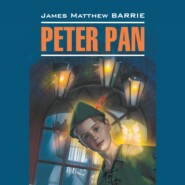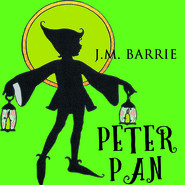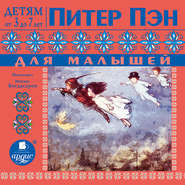По всем вопросам обращайтесь на: info@litportal.ru
(©) 2003-2024.
✖
When a Man's Single: A Tale of Literary Life
Автор
Год написания книги
2017
Настройки чтения
Размер шрифта
Высота строк
Поля
'Keep that for a Burns dinner,' suggested Walsh.
Rob heard now how Tomlinson came to be nicknamed Umbrage.
'He was sub-editing one night,' Walsh explained, 'during the time of an African war, and things were going so smoothly that he and Penny were chatting amicably together about the advantages of having a few Latin phrases in a leader, such as dolce far niente, or cela va sans dire– '
'I can believe that,' said Rob, 'of Penny certainly.'
'Well, in the middle of the discussion an important war telegram arrived, to the not unnatural disgust of both. As is often the case, the message was misspelt, and barely decipherable, and one part of it puzzled Tomlinson a good deal. It read: "Zulus have taken Umbrage; English forces had to retreat." Tomlinson searched the map in vain for Umbrage, which the Zulus had taken; and Penny, being in a hurry, was sure it was a fortress. So they risked it, and next morning the chief lines in the Mirror contents bill were: "Latest News of the War; Capture of Umbrage by the Zulus."'
By this time the reporters had passed into the grounds of the castle, and, being late, were hurrying up the grand avenue. It was the hour and the season when night comes on so sharply, that its shadow may be seen trailing the earth as a breeze runs along a field of corn. Heard from a height, the roar of the Dome among rocks might have been the rustle of the surrounding trees in June; so men and women who grow old together sometimes lend each other a voice. Walsh, seeing his opportunity in Rob's silence, began to speak of himself. He told how his first press-work had been a series of letters he had written when at school, and contributed to a local paper under the signatures of 'Paterfamilias' and 'An Indignant Ratepayer.' Rob scarcely heard. The bare romantic scenery impressed him, and the snow in his face was like a whiff of Thrums. He was dreaming, but not of the reception he might get at the castle, when the clatter of horses awoke him.
'There is a machine behind us,' he said, though he would have written trap.
A brougham lumbered into sight. As its lamps flashed on the pedestrians, the coachman jerked his horses to the side, and Rob had a glimpse of the carriage's occupant. The brougham stopped.
'I beg your pardon,' said the traveller, opening his window, and addressing Rob, 'but in the darkness I mistook you for Colonel Abinger.'
'We are on our way to the castle,' said Walsh, stepping forward.
'Ah, then,' said the stranger, 'perhaps you will give me your company for the short distance we have still to go?'
There was a fine courtesy in his manner that made the reporters feel their own deficiencies, yet Rob thought the stranger repented his offer as soon as it was made. Walsh had his hand on the door, but Rob said —
'We are going to Dome Castle as reporters.'
'Oh!' said the stranger. Then he bowed graciously, and pulled up the window. The carriage rumbled on, leaving the reporters looking at each other. Rob laughed. For the first time in his life the advantage a handsome man has over a plain one had struck him. He had only once seen such a face before, and that was in marble in the Silchester Art Museum. This man looked thirty years of age, but there was not a line on his broad white brow. The face was magnificently classic, from the strong Roman nose to the firm chin. The eyes, too beautiful almost for his sex, were brown and wistful, of the kind that droop in disappointment oftener than they blaze with anger. All the hair on his face was a heavy drooping moustache that almost hid his mouth.
Walsh shook his fist at this insult to the Press.
'It is the baronet I spoke of to you,' he said. 'I forget who he is; indeed, I rather think he travelled incognito when he was here last. I don't understand what he is doing here.'
'Why, I should say this is just the place where he would be if he is to marry Miss Abinger.'
'That was an old story,' said Walsh. 'If there ever was an engagement it was broken off. Besides, if he had been expected we should have known of it at the Argus.'
Walsh was right. Sir Clement Dowton was not expected at Dome Castle, and, like Rob, he was not even certain that he would be welcome. As he drew near his destination his hands fidgeted with the window strap, yet there was an unaccountable twinkle in his eye. Had there been any onlookers they would have been surprised to see that all at once the baronet's sense of humour seemed to overcome his fears, and instead of quaking, he laughed heartily. Sir Clement was evidently one of the men who carry their joke about with them.
This unexpected guest did Rob one good turn. When the colonel saw Sir Clement he hesitated for a moment as if not certain how to greet him. Then the baronet, who was effusive, murmured that he had something to say to him, and Colonel Abinger's face cleared. He did Sir Clement the unusual honour of accompanying him upstairs himself, and so Rob got the seat assigned to him at the dinner-table without having to meet his host in the face. The butler marched him down a long table with a twist in it, and placed him under arrest, as it were, in a chair from which he saw only a few of the company. The dinner had already begun, but the first thing he realised as he took his seat was that there was a lady on each side of him, and a table-napkin in front. He was not sure if he was expected to address the ladies, and he was still less certain about the table-napkin. Of such things he had read, and he had even tried to be prepared for them. Rob looked nervously at the napkin, and then took a covert glance along the table. There was not a napkin in sight except one which a farmer had tied round his neck. Rob's fingers wanted to leave the napkin alone, but by an effort he forced them toward it. All this time his face was a blank, but the internal struggle was sharp. He took hold of the napkin, however, and spread it on his knees. It fell to the floor immediately afterwards, but he disregarded that. It was no longer staring at him from the table, and with a heavy sigh of relief he began to feel more at ease. There is nothing like burying our bogies.
His position prevented Rob's seeing either the colonel at the head of the table or Miss Abinger at the foot of it, and even Walsh was hidden from view. But his right-hand neighbour was a local doctor's wife, whom the colonel had wanted to honour without honouring too much, and she gave him some information. Rob was relieved to hear her address him, and she was interested in a tame Scotsman.
'I was once in the far north myself,' she said, 'as far as Orkney. We were nearly drowned in crossing that dreadful sea between it and the mainland. The Solway Firth, is it?'
Rob thought for a moment of explaining what sea it is, and then he thought, why should he?
'Yes, the Solway Firth,' he said.
'It was rather an undertaking,' she pursued, 'but though we were among the mountains for days, we never encountered any of those robber chieftains one reads about – caterans I think you call them?'
'You were very lucky,' said Rob.
'Were we not? But, you know, we took such precautions. There was quite a party of us, including my father, who has travelled a great deal, and all the gentlemen wore kilts. My father said it was always prudent to do in Rome as the Romans do.'
'I have no doubt,' said Rob, 'that in that way you escaped the caterans. They are very open to flattery.'
'So my father said. We also found that we could make ourselves understood by saying "whatever," and remembering to call the men "she" and the women "he." What a funny custom that is!'
'We can't get out of it,' said Rob.
'There is one thing,' the lady continued, 'that you can tell me. I have been told that in winter the wild boars take refuge in the streets of Inverness, and that there are sometimes very exciting hunts after them?'
'That is only when they run away with children,' Rob explained. 'Then the natives go out in large bodies and shoot them with claymores. It is a most exciting scene.'
When the doctor's wife learned that this was Rob's first visit to the castle, she told him at once that she was there frequently. It escaped his notice that she paused here and awaited the effect. She was not given to pausing.
'My husband,' she said, 'attended on Lady Louisa during her last illness – quite ten years ago. I was married very young,' she added hurriedly.
Rob was very nearly saying he saw that. The words were in his mouth, when he hesitated, reflecting that it was not worth while. This is only noticeable as showing that he missed his first compliment.
'Lady Louisa?' he repeated instead.
'Oh yes, the colonel married one of Lord Tarlington's daughters. There were seven of them, you know, and no sons, and when the youngest was born it was said that a friend of his lordship sent him a copy of Wordsworth, with the page turned down at the poem "We are Seven " – a lady friend, I believe.'
'Is Miss Abinger like the colonel?' asked Rob, who had heard it said that she was beautiful, and could not help taking an interest in her in consequence.
'You have not seen Miss Abinger?' asked the doctor's wife. 'Ah, you came late, and that vulgar-looking farmer hides her altogether. She is a lovely girl, but – '
Rob's companion pursed her lips.
'She is so cold and proud,' she added.
'As proud as her father?' Rob asked, aghast.
'Oh, the colonel is humility itself beside her. He freezes at times, but she never thaws.'
Rob sighed involuntarily. He was not aware that his acquaintances spoke in a similar way of him. His eyes wandered up the table till they rested of their own accord on a pretty girl in blue. At that moment she was telling Greybrooke that he could call her Nell, because 'Miss' Meredith sounded like a reproach.
The reporter looked at Nell with satisfaction, and the doctor's wife followed his thoughts so accurately that, before she could check herself, she said, 'Do you think so?'
Then Rob started, which confused both of them, and for the remainder of the dinner the loquacious lady seemed to take less interest in him, he could not understand why. Flung upon his own resources, he remembered that he had not spoken to the lady on his other side. Had Rob only known it, she felt much more uncomfortable in that great dining-room than he did. No one was speaking to her, and she passed the time between the courses breaking her bread to pieces and eating it slowly, crumb by crumb. Rob thought of something to say to her, but when he tried the words over in his own mind they seemed so little worth saying that he had to think again. He found himself counting the crumbs, and then it struck him that he might ask her if she would like any salt. He did so, but she thought he asked for salt, and passed the salt-cellar to him, whereupon Rob, as the simplest way to get out of it, helped himself to more salt, though he did not need it. The intercourse thus auspiciously begun, went no further, and they never met again. It might have been a romance.
The colonel had not quite finished his speech, which was to the effect that so long as his tenants looked up to him as some one superior to themselves they would find him an indulgent landlord, when the tread of feet was heard outside, and then the music of the waits. The colonel frowned and raised his voice, but his guests caught themselves tittering, and read their host's rage in his darkening face. Forgetting that the waits were there by his own invitation, he signed to James, the butler, to rush out and mow them down. James did not interpret the message so, but for the moment it was what his master meant.
While the colonel was hesitating whether to go on, Rob saw Nell nod encouragingly to Greybrooke. He left his seat, and before any one knew what he was about, had flung open one of the windows. The room filled at once with music, and, as if by common consent, the table was deserted. Will opened the remaining windows, and the waits, who had been singing to shadows on the white blinds, all at once found a crowded audience. Rob hardly realised what it meant, for he had never heard the waits before.
It was a scene that would have silenced a schoolgirl. The night was so clear, that beyond the lawn where the singers were grouped the brittle trees showed in every twig. No snow was falling, and so monotonous was the break of the river, that the ear would only have noticed it had it stopped. The moon stood overhead like a frozen round of snow.
Looking over the heads of those who had gathered at one of the windows, Rob saw first Will Abinger and then the form of a girl cross to the singers. Some one followed her with a cloak. From the French windows steps dropped to the lawn. A lady beside Rob shivered and retired to the fireside, but Nell whispered to Greybrooke that she must run after Mary. Several others followed her down the steps.






